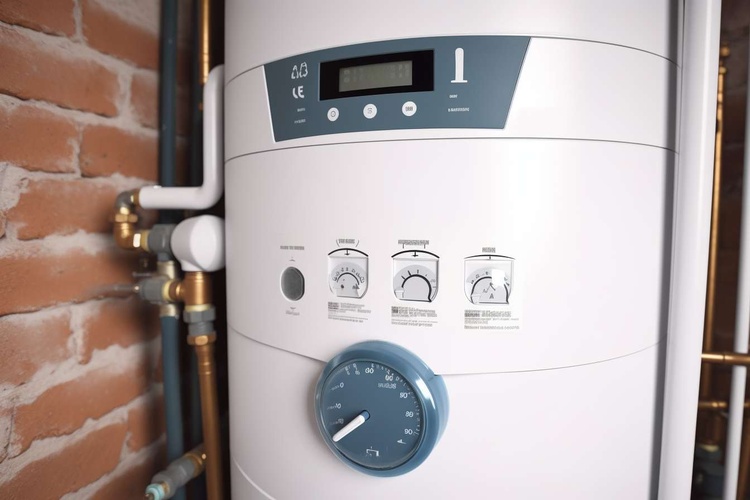Boiler Replacement Grants May Help Brits Get New Boilers
As energy efficiency takes centre stage in the UK, boiler replacement grants offer homeowners a valuable opportunity to modernise their heating systems with financial support. Government initiatives such as the ECO4 and Boiler Upgrade Scheme (BUS) aim to enhance energy efficiency and reduce carbon emissions. Understanding these grants aids informed decisions, promoting sustainable and cost-effective heating solutions.

Replacing an old, inefficient boiler can feel like a daunting financial commitment, especially during times of economic uncertainty. However, several grant schemes and funding options are available across the UK to support homeowners in upgrading their heating systems. These programmes aim to reduce carbon emissions, improve energy efficiency, and lower household energy bills. By exploring the available options, you may find that replacing your boiler is more affordable than you initially thought.
Understanding Boiler Replacement Grants in the UK
Boiler replacement grants are financial assistance programmes designed to help homeowners and tenants upgrade their heating systems. These grants typically target older, less efficient boilers that contribute to higher energy consumption and increased carbon emissions. The UK government, along with energy suppliers and local authorities, offers various schemes to encourage the transition to more sustainable heating solutions.
Eligibility for these grants often depends on factors such as household income, the type of property you own, and the current heating system in place. Some schemes focus on low-income households, while others are available to a broader range of applicants. The primary goal is to make energy-efficient heating accessible to those who might otherwise struggle to afford the upfront costs of a new boiler.
It is important to research the specific criteria for each scheme, as requirements can vary. Some grants cover the full cost of installation, while others provide partial funding. Understanding these nuances can help you determine which programme best suits your circumstances.
Key Boiler Replacement Schemes
Several key schemes are available to UK residents seeking financial support for boiler replacements. The Energy Company Obligation (ECO) scheme is one of the most well-known. Funded by major energy suppliers, ECO provides grants to eligible households for energy efficiency improvements, including boiler replacements. The scheme prioritises low-income families, those receiving certain benefits, and homes with poor energy efficiency ratings.
Another important initiative is the Home Upgrade Grant, which targets households not connected to the gas grid. This scheme helps fund the installation of low-carbon heating systems, such as heat pumps, in properties that rely on oil, LPG, or electric heating. While not exclusively for boilers, it offers an alternative pathway for those looking to modernise their heating.
Local authorities also run their own grant programmes, often in partnership with national schemes. These can vary significantly by region, so checking with your local council can reveal additional opportunities. Some councils offer top-up funding or have specific initiatives aimed at reducing fuel poverty in their areas.
The Boiler Upgrade Scheme (BUS)
The Boiler Upgrade Scheme is a government initiative designed to encourage homeowners to switch from fossil fuel heating systems to low-carbon alternatives. Launched to support the UK’s net-zero carbon emissions target, the scheme provides grants for the installation of heat pumps and biomass boilers.
Under the BUS, eligible applicants can receive up to £7,500 towards the cost of an air source heat pump or biomass boiler. Ground source heat pumps may qualify for even higher grants. The scheme is available to homeowners and landlords in England and Wales, with similar initiatives operating in Scotland and Northern Ireland.
While the BUS does not cover traditional gas boiler replacements, it represents a significant opportunity for those willing to transition to renewable heating technologies. Heat pumps, in particular, are gaining popularity due to their efficiency and lower running costs over time. However, they do require a higher initial investment, which the grant aims to offset.
It is worth noting that properties must meet certain energy efficiency standards before qualifying for the BUS. This may involve improving insulation or addressing other heat loss issues. The scheme is administered through certified installers, who can guide you through the application process and ensure your property meets the necessary criteria.
Eligibility and Applications
Eligibility for boiler replacement grants varies depending on the scheme. For ECO grants, you typically need to be receiving certain benefits, such as Universal Credit, Pension Credit, or Child Tax Credit. Alternatively, your home may qualify if it has a low energy efficiency rating or if you are considered vulnerable to fuel poverty.
For the Boiler Upgrade Scheme, eligibility is broader but requires that your property meets minimum energy efficiency standards. You must also be replacing a fossil fuel heating system with a low-carbon alternative. The application process involves working with an accredited installer who will assess your property and submit the necessary documentation on your behalf.
Local authority grants often have their own specific criteria, which can include income thresholds, property types, or geographic restrictions. It is advisable to contact your local council directly or visit their website to explore what is available in your area.
The application process generally involves providing proof of eligibility, such as benefit statements or energy performance certificates. An approved installer will then conduct a survey of your property to determine the most suitable heating solution. Once approved, the grant is typically paid directly to the installer, reducing or eliminating your upfront costs.
Estimated Costs and Providers
Understanding the costs associated with boiler replacement can help you plan your budget and assess the value of available grants. Below is a comparison of typical boiler types, providers, and estimated costs:
| Boiler Type | Provider Example | Cost Estimation |
|---|---|---|
| Combi Gas Boiler | British Gas, Worcester Bosch | £1,500 - £3,000 |
| System Gas Boiler | Vaillant, Baxi | £2,000 - £3,500 |
| Air Source Heat Pump | Daikin, Mitsubishi | £7,000 - £13,000 |
| Ground Source Heat Pump | Kensa, NIBE | £10,000 - £18,000 |
| Biomass Boiler | Grant UK, Froling | £9,000 - £15,000 |
Prices, rates, or cost estimates mentioned in this article are based on the latest available information but may change over time. Independent research is advised before making financial decisions.
These figures include installation costs and are approximate. Actual prices will depend on factors such as property size, existing heating infrastructure, and regional labour rates. Grants can significantly reduce these costs, making upgrades more accessible.
Why You Should Learn More About Boiler Replacement Grants Today
Exploring boiler replacement grants sooner rather than later can offer several advantages. First, grant funding is often limited and allocated on a first-come, first-served basis. Waiting too long may mean missing out on available support. Second, upgrading to a more efficient heating system can lead to immediate savings on energy bills, which can offset the cost of installation over time.
Additionally, older boilers are more prone to breakdowns, which can result in costly repairs and uncomfortable living conditions during colder months. Proactively replacing your boiler with the help of a grant ensures you have a reliable heating system when you need it most.
Finally, transitioning to low-carbon heating options contributes to broader environmental goals. By reducing your household’s carbon footprint, you play a part in combating climate change while benefiting from modern, efficient technology.
Taking the time to research available schemes, check your eligibility, and consult with accredited installers can open doors to affordable heating solutions. Whether you qualify for a full grant or partial funding, the support available can make a meaningful difference in your home’s comfort and energy efficiency.




